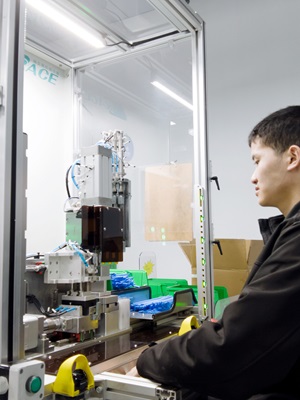
Zoltan Nemeth

Chairman @ Inclusion Factory
Zoltan Nemeth is the Executive Vice President of IMS Gear Asia and Chairman of the Board of the Inclusion Factory in Taicang, China. Building on the proud 160-year heritage of IMS Gear, a family-owned German company rooted in the Black Forest, he combines industrial leadership with a deep commitment to social responsibility. Through the Inclusion Factory, Zoltan champions one of China’s pioneering initiatives for inclusive vocational development for people with mental disabilities. Recognized by the local government as the "Most Influential Disability Support Charity Enterprise", the Inclusion Factory is more than just a charitable project—it is a scalable and forward-looking model that addresses pressing social challenges while creating lasting impact in the community.




